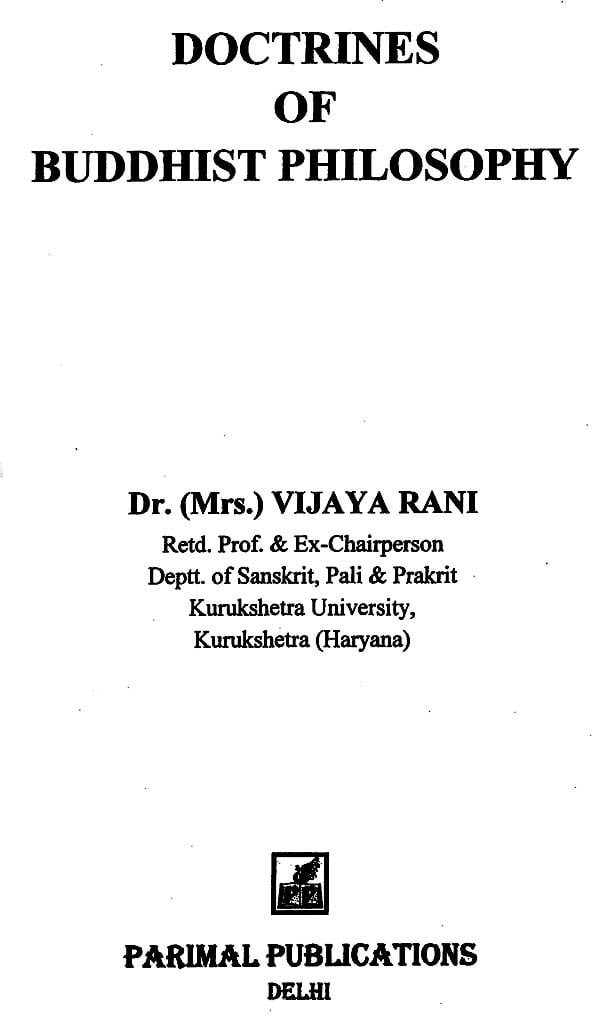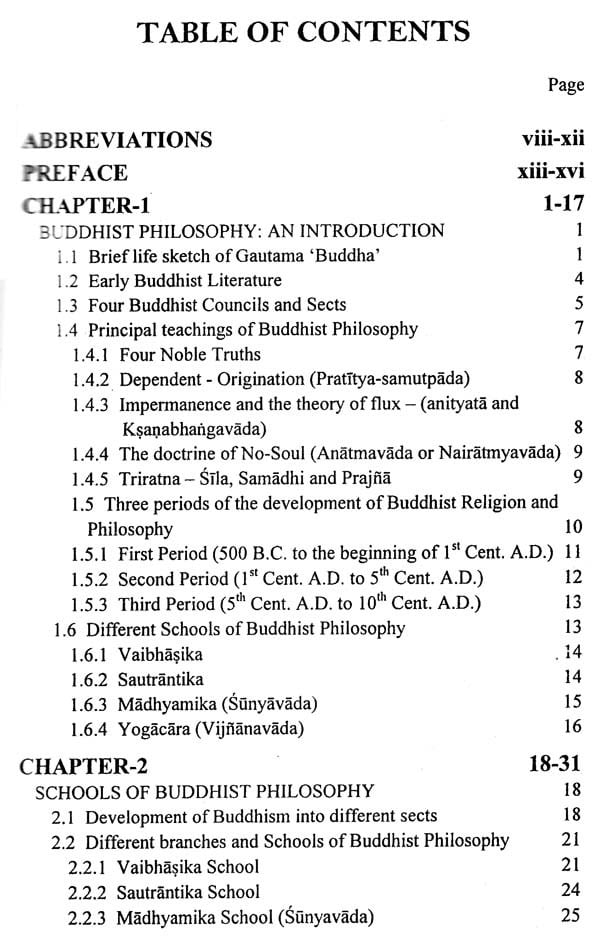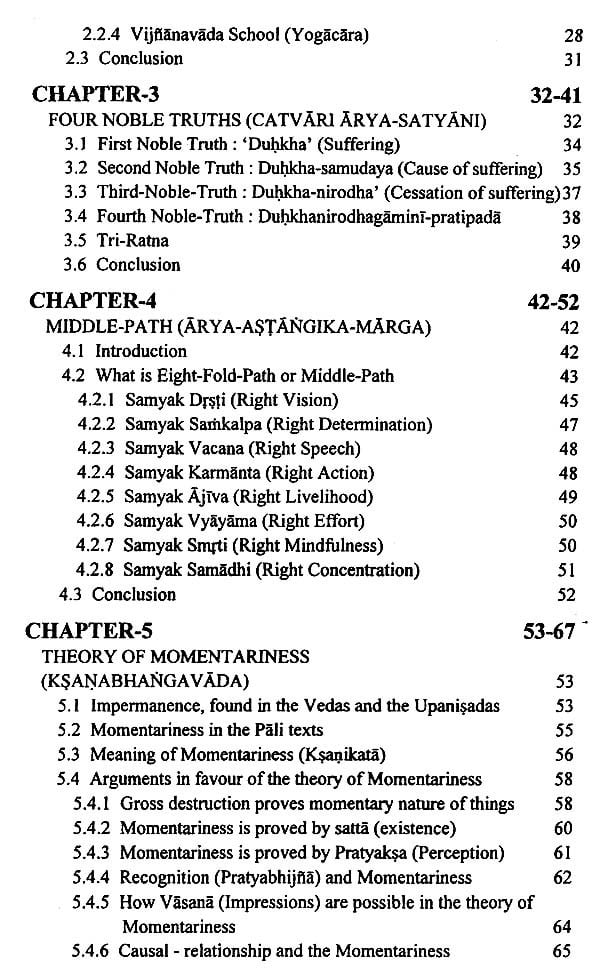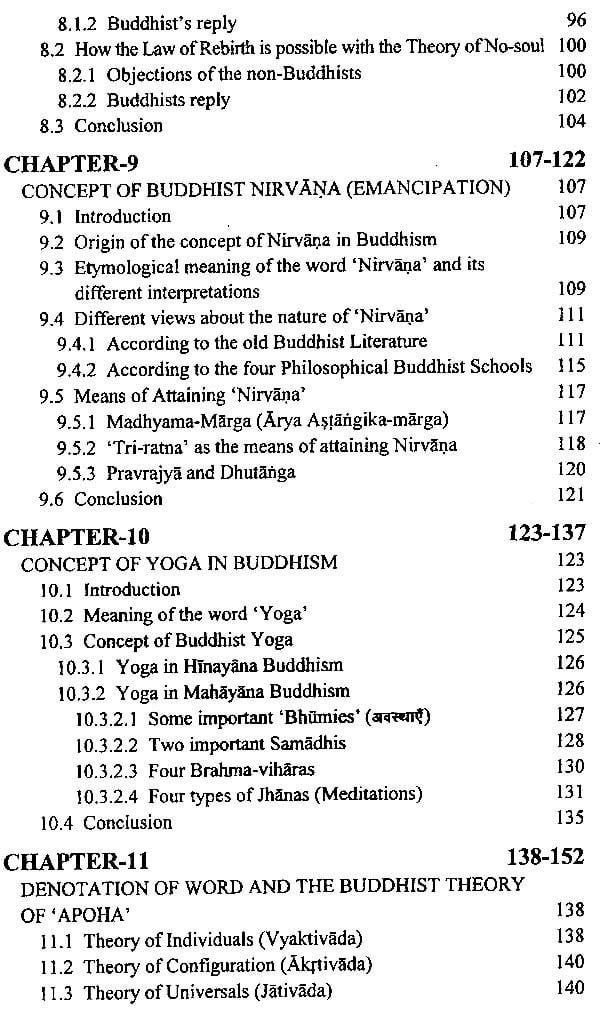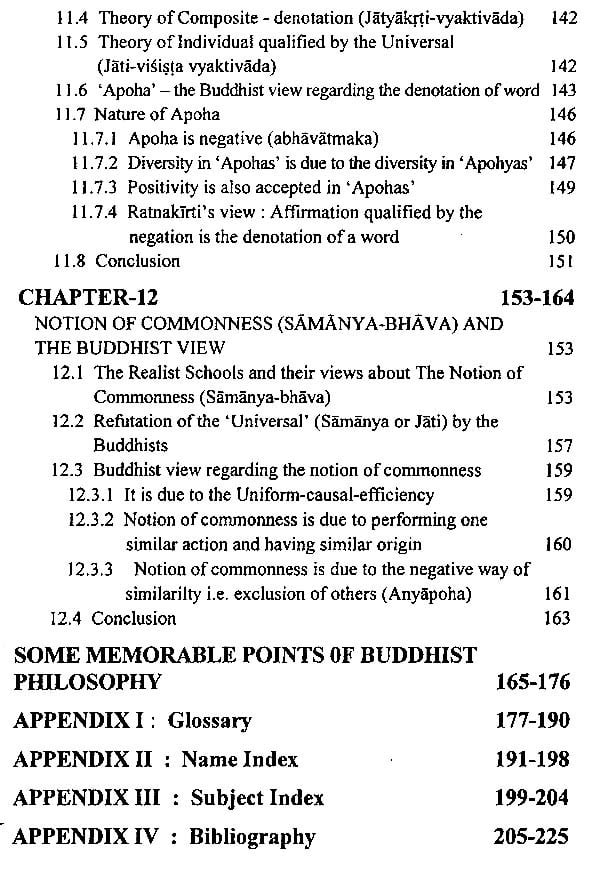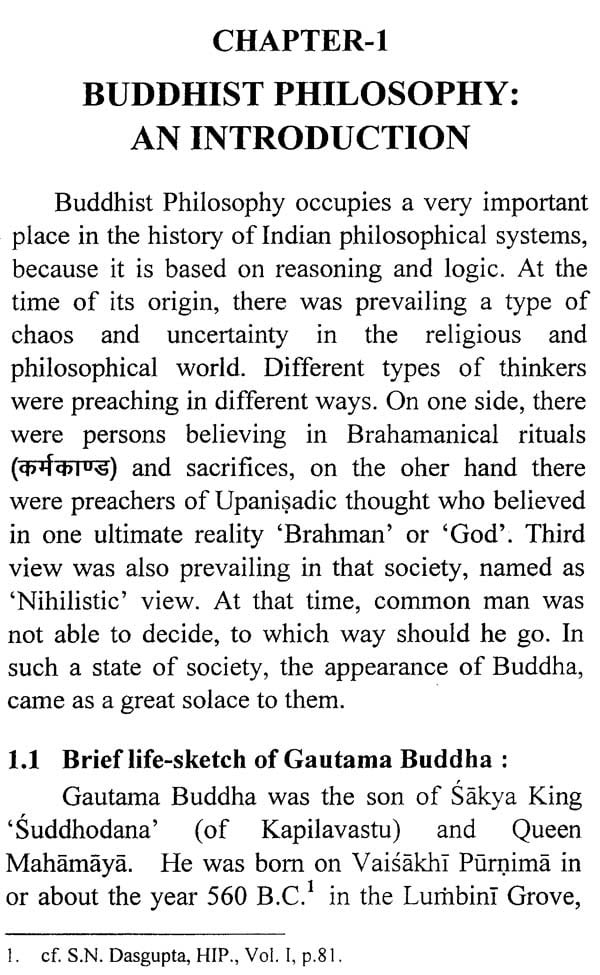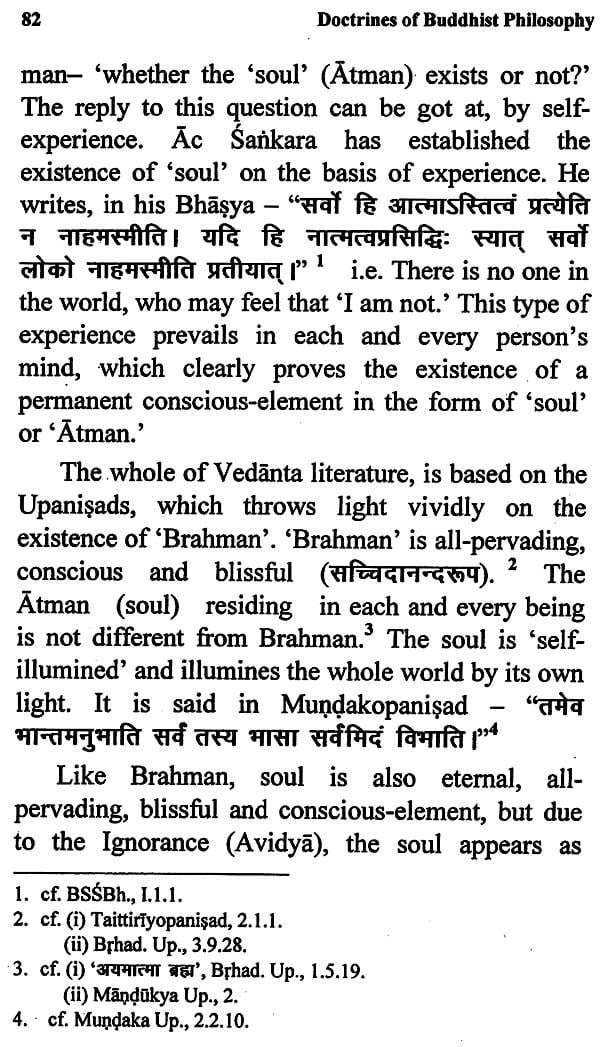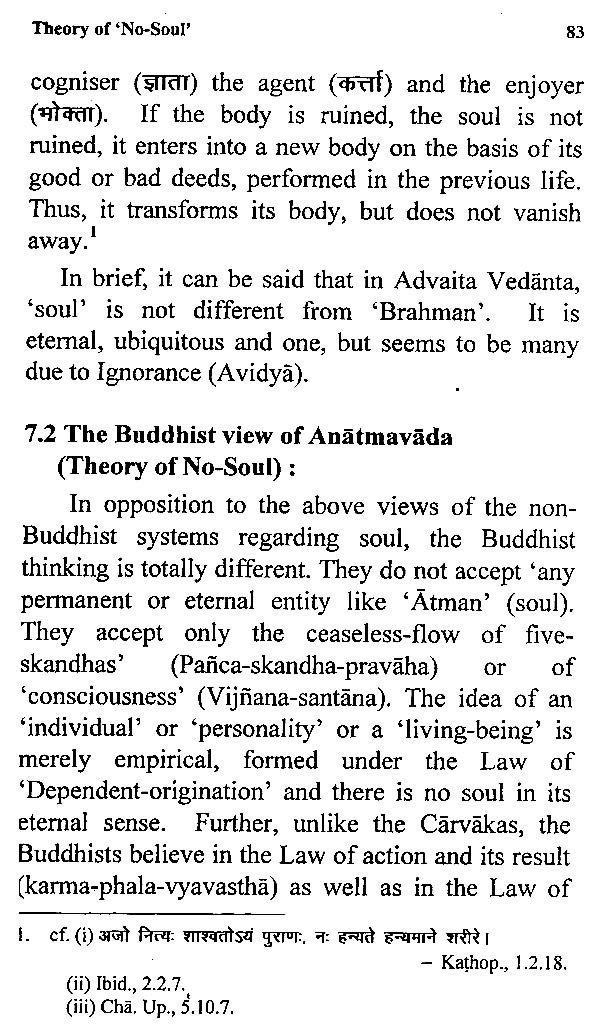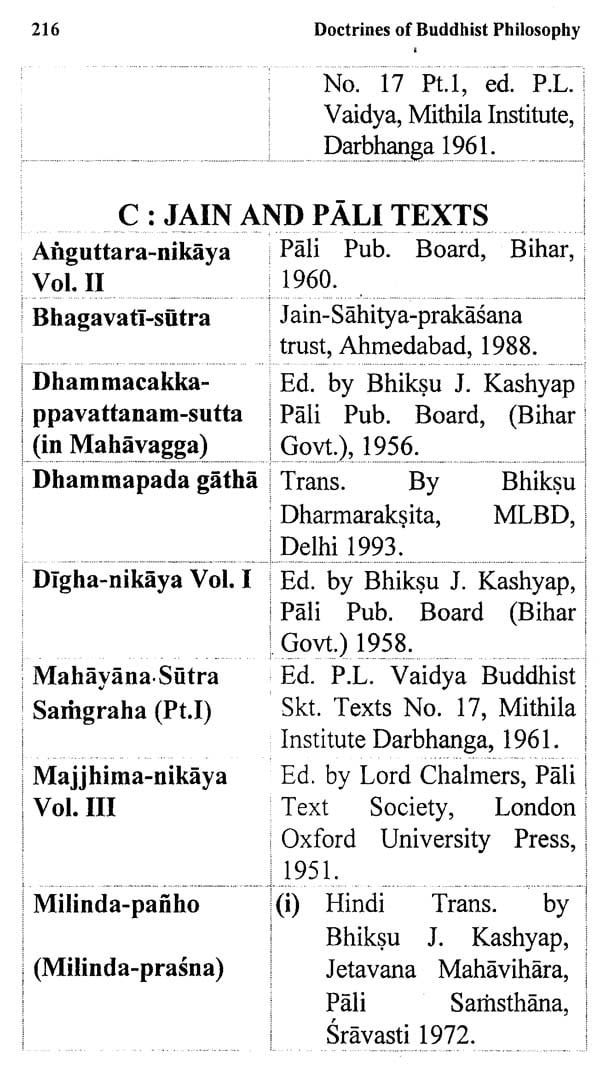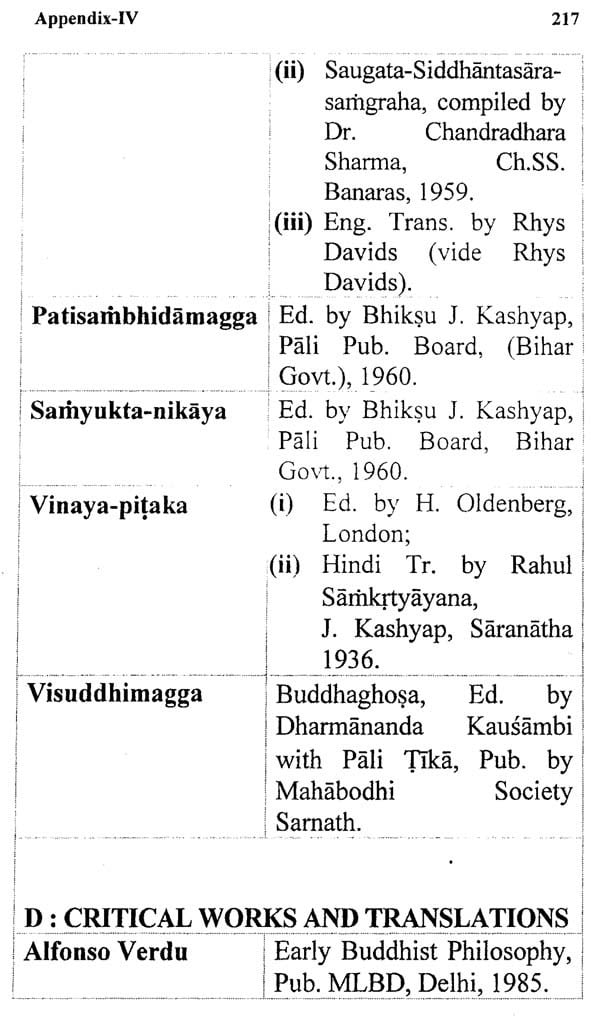
Doctrines of Buddhist Philosophy
Book Specification
| Item Code: | AZE034 |
| Author: | Vijaya Rani |
| Publisher: | PARIMAL PUBLICATION PVT. LTD. |
| Language: | ENGLISH |
| Edition: | 2022 |
| ISBN: | 9788171107926 |
| Pages: | 246 |
| Cover: | HARDCOVER |
| Other Details | 9.00x6.00 inches |
| Weight | 440 gm |
Book Description
Buddhism, as already known to the academic world, emerged as a protestant thought and philosophical stream against the Brahmanical system which with the passage of time, had developed certain concepts and religious practices, and created confusion in the psyche of common man. Like Upanişads. Buddhism too emphasized on the pure knowledge of the ultimate Satya discarding unnecessary rites and rituals.
Instead of taking recourse of philosophical and ritualistic complexities, Buddhism prescribed the ethical practices of Sila, Samadhi and prajna. It encouraged rational thinking in place of blind convictions without going to the refuge of any unknown entity. Buddhism accepted the concept of karma and rebirth as already accepted and established in the Santana philosophy and belief system, it discarded the theory of soul transmigration; and emphatically said that rebirth is a result of continuous flux of mind-and-body (nama-rupa) only and there is no role of permanent entity like soul (atman) in it.
In the twelve chapters of the book, the author proceeds with the fundamental concepts of four Noble Truths including the Fight fold Path. Dependent Origination, No-Soul, three Refuges, periodization of the Buddhist Philosophy, various philosophical schools. Momentariness, Law of Action and its resultants, Nirvana. Yoga, Apoba and finally the notion of commonness and so on.
At the time of the origin of Buddhism, there were prevailing at least three main streams of thought in India. First, the stream of Brahmanical rituals and sacrifices, secondly, the philosophy of Upanişads regarding the Ultimate Reality 'Brahman' and thirdly, the Nihilistic conceptions like that of Akrīyāvāda, Niyativada, Ucchedvada and so on. There was no rational and logical basis behind them. Common man was in a chaotic and uncertain state of mind. Moral values were declining. In such an atmosphere of the society, Gautama Buddha appeared upon the scene as a great solace to them. His teachings gave a very simple, easily adoptable and peaceful way of life. Four-Noble-Truths, Noble Eightfold-path (Arya-Aṣṭāngika-marga), Theory of Impermanence and Momentariness, Dependent origination, No-soul etc. are the most important doctrines of Buddhism, which were liked not only by the masses, but also by the reputed and most powerful persons of the society.
**Contents and Sample Pages**
